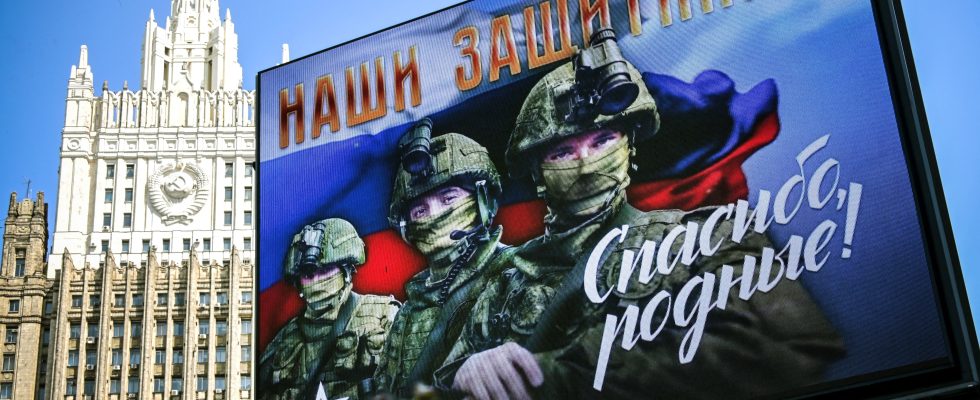Presenting yourself at a military enlistment office has now become the simplest solution to obtain Russian citizenship. This is what the new decree signed by Vladimir Putin on January 4, which allows foreigners to obtain Russian citizenship if they go to fight in Ukraine.
Already, in September 2022, a “simplified procedure” allowed foreigners who had signed a one-year military contract to obtain Russian nationality. The latter could receive their Russian passport after six months of service. In May 2023, a second decree accelerated the procedure, by canceling the mandatory length of service. And since the beginning of the year, the examination deadlines have been shortened to one month.
The target: Central Asian migrants
In Russia, it is mainly migrants from Central Asia that the authorities seek to lure. In reality, the latter, already present in the millions in the country, have been targeted for more than a year by recruiters, and enlisted in the army in a more or less forced manner. Regularly, police raids on this precarious community are organized repeatedly, often with violence and humiliation, under the cover of operations aimed at flushing out illegal migrants. Once “captured”, they are sent to military registration offices, like the evening of December 31, in Saint Petersburg, where nearly 3,000 migrants were arrested and taken to the police.
Lawyer Valentina Tchoupik, one of the only Russian voices to denounce these forced enlistments, has warned several times of the crimes of which the Russian authorities are guilty with regard to these Central Asian citizens, “who are dangled with a high salary and the rapid obtaining of Russian nationality so that they can enlist, without ever receiving their due”. No figures say how many foreigners are fighting alongside Russia, although Sergei Lavrov said the number of non-Russian volunteers “increased 7 times in 2023” in the army’s ranks. In addition to the Central Asian population, Cuban and Nepalese citizens have already been transferred to Russia to fight in Ukraine.
400,000 men to be recruited in 2024
Undoubtedly, the decree aimed at simplifying naturalization is intended as a way to increase the number of soldiers in Ukraine. And if the authorities take such a measure, “it is a sign that contractual recruitment in the army is not working,” explains Sergei Krivenko, director of the human rights NGO “Citizen. Army. Right”.
According to well-informed journalist Farida Roustamova, the Ministry of Defense intends to recruit 400,000 soldiers under contract for the year 2024 – in 2023, 387,000 would have been recruited – and would have already sent its quota instructions to the regional authorities. “In peacetime, it is already difficult to recruit 400,000 contract workers, so today, it is mission impossible,” estimates Sergei Klivenko.
Figures for the total number of troops currently fighting in Ukraine are classified, but, according to this expert, they could be around 600,000 men. “When the Ministry of Defense makes statements boasting about the increasing number of military contracts, it is very hypocritical, comments Sergei Klivenko. Today, men do not sign contracts voluntarily, but under duress. For example, mobilized from September 2022 are forced to sign contracts, just like the conscripts. This is how the authorities inflate the figures.”
Towards a new mobilization?
And Russian cities may be plastered with posters encouraging military enlistment, but volunteers are rare, because the lure of profit is no longer a dream. Due to a labor shortage in Russia, Russian salaries have never been higher, making the monthly pay of 200,000 rubles (nearly 2,000 euros) for a military contract less attractive. .
“Sooner or later, to reconstitute the Russian army (experts speak of more than 300,000 Russians killed since the start of the war), the authorities will trigger a new wave of mobilization,” concludes Sergei Klivenko, like that of September 2022 which sent 300,000 men to the front and triggered the exodus of hundreds of thousands of Russians. But the unpopularity of such a measure forces Vladimir Putin to wait until the month of the presidential election, in March 2024, to first ensure his re-election.
.
